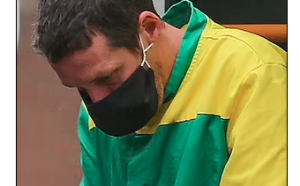(CNSNews.com) – The federal government has awarded the University of California Los Angeles $193,989 in taxpayer funds to study skill-building as HIV prevention for male sex workers in Peru.
The grant was issued by the National Institute of Mental Health, a part of the National Institutes of Health, and proposes “a pilot study for a group that has been neglected in the Peruvian HIV epidemic, namely male sex workers (fletes).”
Men having sex with men (MSM) in Peru have a “high burden of HIV” at 10 to 15 percent, compared to male sex workers, who have a 23 percent prevalence, researchers found.
According to the grant, recent HIV and sexually transmitted infection (STI) research in Peru has focused on “possible bridge populations” that include: heterosexually identified men, male sex partners of pregnant women, male clients of female sex workers, and men who have sex with men and women.
“However, there has been limited epidemiologic research and no prevention research focusing on fletes,” the grant said. “Our research has demonstrated that fletes are an important component of the Peruvian HIV epidemic with specific social, cultural, and behavioral characteristics that place them at high risk for acquisition and transmission of HIV and STIs.”
“Fletes engage in survival sex work for a very low wage and with significant pressure to accept all of the primarily male clients that solicit their services, limited ability to negotiate condom use, and low rates of condom use,” the grant added.
The grant recipient conducted research on the lives, sexual behaviors, and HIV/STI risk of two subpopulations in Lima – “higher-income fletes in more affluent neighborhoods and low-income fletes from the city’s urban core.”
The research revealed 23 percent of low-income “fletes” had HIV and 22 percent had syphilis. Thus, they concluded there was “an urgent need for HIV prevention interventions that specifically address the issues” that fletes face.
The study will analyze the “feasibility and acceptability of a multi-service skill-building center on the transmission of HIV and sexually transmitted infections among low-income male sex workers” in Peru.
“The Center will provide a space for fletes to engage with each other and develop a sense of shared community while accessing: (1) fundamental life needs, (2) safe socialization opportunities, (3) basic healthcare, (4) HIV/STI risk reduction activities, (5) personal development activities, and (6) vocational training,” the grant abstract said.
The grant specifies three aims – the first of which is “to estimate the effectiveness of the intervention for reducing incidences of HIV and syphilis among fletes, the proportion of fletes’ income derived from sex work, and the proportion of fletes reporting unprotected sex with clients.”
Secondly, researchers aim “to assess the (a) feasibility and (b) acceptability of the intervention and identify factors that hinder or facilitate implementation.”
And third, the project aims “to test the effectiveness of strategies (a) to avoid contamination through participation of the comparison group in the intervention and (b) to retain all participants for follow-up in a longer-term study.”
The project started on Aug. 1, 2013 and will be completed by April 30, 2015. The budget start date was May 1, 2014 and will end on April 30, 2015.






